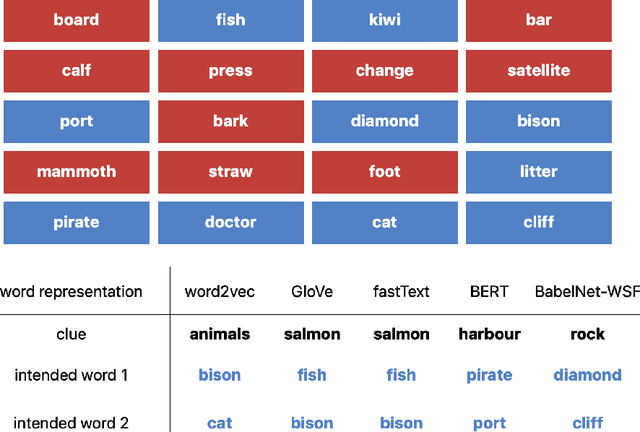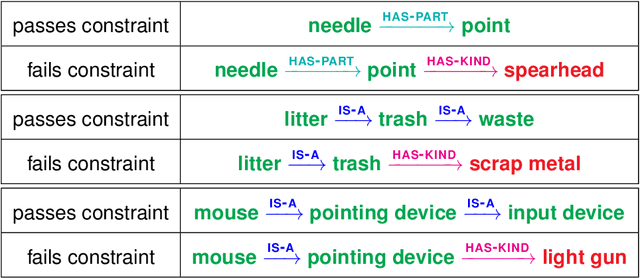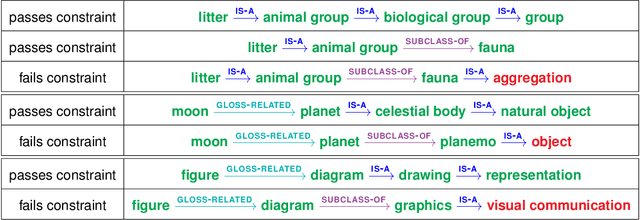Playing Codenames with Language Graphs and Word Embeddings
Paper and Code
May 12, 2021



Although board games and video games have been studied for decades in artificial intelligence research, challenging word games remain relatively unexplored. Word games are not as constrained as games like chess or poker. Instead, word game strategy is defined by the players' understanding of the way words relate to each other. The word game Codenames provides a unique opportunity to investigate common sense understanding of relationships between words, an important open challenge. We propose an algorithm that can generate Codenames clues from the language graph BabelNet or from any of several embedding methods - word2vec, GloVe, fastText or BERT. We introduce a new scoring function that measures the quality of clues, and we propose a weighting term called DETECT that incorporates dictionary-based word representations and document frequency to improve clue selection. We develop BabelNet-Word Selection Framework (BabelNet-WSF) to improve BabelNet clue quality and overcome the computational barriers that previously prevented leveraging language graphs for Codenames. Extensive experiments with human evaluators demonstrate that our proposed innovations yield state-of-the-art performance, with up to 102.8% improvement in precision@2 in some cases. Overall, this work advances the formal study of word games and approaches for common sense language understanding.
 Add to Chrome
Add to Chrome Add to Firefox
Add to Firefox Add to Edge
Add to Edge